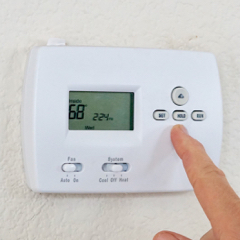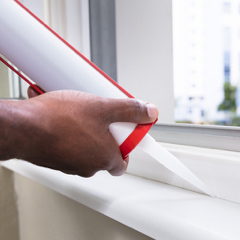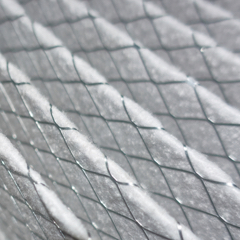ENERGY-SAVING TIPS
Fall energy-saving tips for
a lower electricity bill
Fall is an excellent time to maximize savings on your electricity bill. The summer heat is fading, but it’s not too cold yet, meaning both your air conditioner and your heater are probably running infrequently. Use this transition period as an opportunity to take advantage of the milder weather while making small changes around your home to prepare for the winter months ahead. Learn how to save electricity and help lower your energy bill with these easy fall energy-saving tips.
Wondering how to save on energy bills this fall? Check out these five energy-saving tips:

Take advantage of sunlight. Open your curtains on south-facing windows in the morning and let the power of the sun warm your home during the day for free. And when you arrive home, don’t forget to close the curtains to lock in that free heat.
Use ceiling fans. Many people don’t realize that ceiling fans aren’t just for summertime — they can also be used in colder months to your advantage. Heat rises, so set the fan blades to spin clockwise and they will push warm air down from the ceiling.
Layer up. On crisp autumn days, celebrate all that fall fashion has to offer by adding a warm sweater or scarf instead of automatically reaching for the thermostat.

Keep your thermostat set at 68 degrees or lower when at home. When temperatures outside begin to drop, set your thermostat as low as comfortable for your family so your system won’t have to work so hard.
When not at home, turn your thermostat down more. When you’re gone during the day or for longer periods of time, set your thermostat 10 to 15 degrees lower to conserve energy.
Use a smart thermostat. To make home heating easier, consider installing a smart thermostat, which can learn your routines and adjust the heat settings accordingly.
Set your water heater to 120 degrees. This energy-efficient temperature should be plenty hot for most homes and water-consuming appliances — plus, you’ll avoid scalding.

Upgrade your insulation. Whether you hire an expert or do it yourself, adding the correct amount of insulation in your exterior walls, crawl spaces, basement and/or attic can deter heat loss and help you save on your electricity bill.
Seal air leaks and cracks around windows and doors. You’ll save on electricity costs by keeping hot air in and cold air out in autumn and winter.
Check your fireplace. When you’re not burning a fire in your fireplace, keep the damper closed to prevent warm air from escaping out the chimney. You can also add caulking around the hearth to ensure heat stays in.
Don’t forget about tiny leaks. Did you know electrical outlets, light switches and lighting fixtures can all be sources of heat loss? Install plastic security caps in outlets or foam gaskets behind outlets and switches to minimize these small but persistent leaks.

Schedule a seasonal checkup. An HVAC technician can make sure your heater is running efficiently and ready to keep you cozy during the colder months ahead.
Replace your furnace filter once a month (or as needed). Keeping your air filter clean is one of the most important energy-saving tips for fall — and winter, spring and summer. Not only does a clean filter allow proper airflow for peak HVAC performance, it also filters out dust, dirt and other allergens from your home.
Perform a vent check. Make sure all the air vents around your home are free from furniture, drapes, toys or other items that can restrict airflow.

Invest in energy efficiency. If you’re considering a new furnace, water heater or other large appliance, it’s always wise to consider those with ENERGY STAR® labels. These energy-efficient models can help you achieve a lower electricity bill by reducing your usage.
By implementing some of these tips for saving energy in fall, as well as year-round energy-saving tips, you can make your home more energy efficient and help reduce your electricity bill.